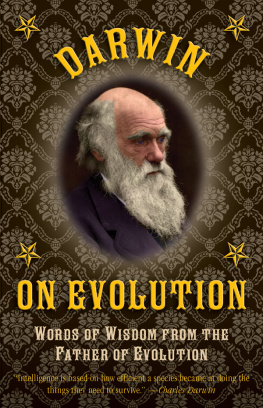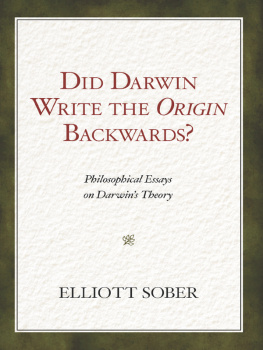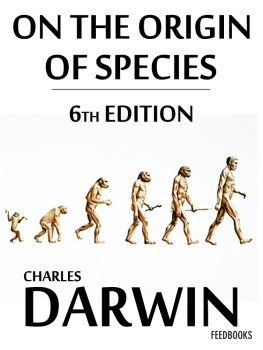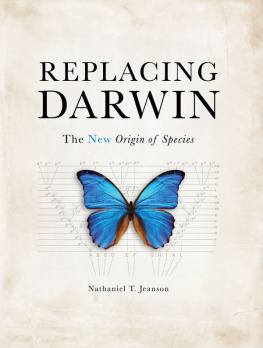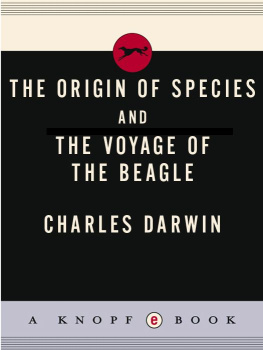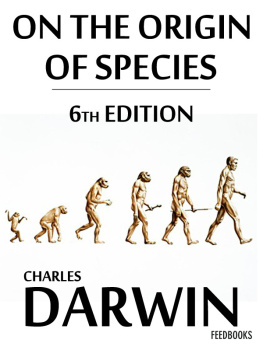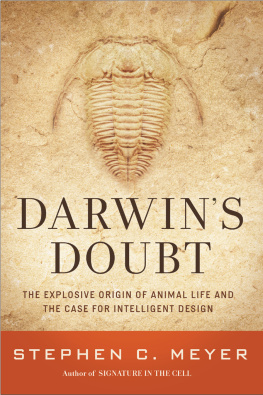ANIMAL
ALGORITHMS
ANIMAL
ALGORITHMS
EVOLUTION AND THE MYSTERIOUS
ORIGIN OF INGENIOUS INSTINCTS
ERIC CASSELL
SEATTLE DISCOVERY INSTITUTE PRESS 2021
Description
How do some birds, turtles, and insects possess navigational abilities that rival the best manmade navigational technologies? Who or what taught the honey bee its dance, or its hive mates how to read the complex message of the dance? How do blind mound-building termites master passive heating and cooling strategies that dazzle skilled human architects? In The Origin of Species Charles Darwin conceded that such instincts are so wonderful that the mystery of their origin would strike many as a difficulty sufficient to overthrow my whole theory. In Animal Algorithms , Eric Cassell surveys recent evidence and concludes that the difficulty remains, and indeed, is a far more potent challenge to evolutionary theory than Darwin imagined.
Copyright Notice
2021 by Discovery Institute. All Rights Reserved.
Library Cataloging Data
Animal Algorithms: Evolution and the Mysterious Origin of Ingenious Instincts by Eric Cassell
Library of Congress Control Number: 2021947213
ISBN: 978-1-63712-006-4 (paperback), 978-1-63712-007-1 (Kindle), 978-1-63712-008-8 (EPUB)
BISAC: SCI070060 SCIENCE/Life Sciences/Zoology/Ethology (Animal Behavior)
BISAC: SCI027000 SCIENCE/Life Sciences/Evolution
BISAC: SCI075000 SCIENCE/Philosophy & Social Aspects
Publisher Information
Discovery Institute Press, 208 Columbia Street, Seattle, WA 98104
Internet: http://www.discoveryinstitutepress.com/
Published in the United States of America on acid-free paper.
First Edition, First Printing, November 2021.
ADVANCE PRAISE
This new book fills an important gap in the literature about problems for neo-Darwinism and empirical evidence for intelligent design theory. While there are many works on highly complex systems in genetics, molecular machines, and anatomy, this work focuses on the utterly mysterious origin of complex programmed animal behavior and instincts. From the navigation of migrating birds and butterflies to the dance of honey bees and the miraculous abilities of other insect societies there are abundant phenomena for which Darwinism has failed to provide any plausible and adequate explanation, while the obvious design explanation has been excluded a priori by mainstream academia. This book is another welcome and highly recommended step towards an overdue paradigm change in modern biology.
Gnter Bechly , PhD, paleoentomologist, senior fellow with the Center for Science and Culture, former curator in the department of paleontology for the State Museum of Natural History in Stuttgart, Germany
All computer programs are algorithms. Eric Cassell wonderfully describes the clever algorithms in many animals. Where did these embedded computer programs come from? Specified complexity, irreducible complexity, and the Cambrian explosion are inexplicable from a Darwinian viewpoint. In this book, Cassell masterfully adds animal algorithms to the list.
Robert J. Marks II , PhD, distinguished professor of electrical & computer engineering, Baylor University; FIEEE and FOSA; director of the Walter Bradley Center for Natural & Artificial Intelligence; editor-in-chief, BIO-Complexity
Eric Cassell has given us an extremely well-researched book that is enjoyable to read and addresses what is surely the most fascinating aspect of animals: their behavior. Examples of some intriguingly complex behaviors are clearly explained, along with the ways that the traditional evolutionary paradigm has struggled to explain their origin. Cassell shows that some complex animal behaviors appear to be based on programs. But if so, then who or what programmed them? Animal Algorithms reveals how this is a particularly difficult question for Darwinian evolution to answer. In contrast, intelligent agents are the only sort of cause known to be able to generate computer algorithms. Perhaps, then, intelligent design played a role in the origin of these complex programmed behaviors we find in these animals. Hopefully, this book will awaken more minds among the general public, and the scientific community, to possibilities beyond the rapidly aging creed of Darwinism.
Malcolm Chisholm , PhD, entomology, Bristol University; MA, zoology, Oxford University; president of Data Millennium LLC; recipient, Data Management Association International Lifetime Achievement Award
As a research ecologist, I appreciate Eric Cassells thorough and readable exploration of complex programmed behavior in animals from an engineers perspective. Well researched with concise explanations and examples, Animal Algorithm s employs a systems biology approach to ably expose neo-Darwinian mechanisms as deficient and show that design inferences offer tenable explanations that point to multiple vistas of further scientific investigation. A stellar contribution that extends the breadth of ID research.
George A. Damoff , PhD, adjunct research faculty, Division of Environmental Science, Arthur Temple College of Forestry and Agriculture, Stephen F. Austin State University
A nimal Algorithms offers a fascinating exploration of some of the astonishingly complex programmed behaviors exhibited in the animal kingdom. In wonderfully concise and accessible language, Cassell explains the intricacies of these behaviors and builds a compelling argument for their intelligent design. Readers will come away with a clear understanding of why the algorithmic dances of organisms such as bees, ants, and butterflies pose an enormous challenge to the materialist evolutionary paradigm. This book is a true contribution to the ongoing conversation.
Melissa Cain Travis , PhD, author of Science and the Mind of the Maker ; affiliate faculty, Colorado Christian University
Eric Cassell has asked some very important questions about the origins of complex behavioral patterns in animals. The coordination of anatomy, physiology, communication, etc. to produce complex behavior is at least partially understood in many animals, but the origin of these behaviors is a huge mystery. The remarkable migration of monarch butterflies or the eusocial behaviors of ant colonies have long fascinated humanity with little explanation of how they came about. Are genes sufficient to account for new behaviors? Cassell suggests that intelligent design provides a far better framework for understanding the origin of these and other astounding behaviors than methodological naturalism. Animal Algorithms breaks new ground here in a thought-provoking discussion. Well worth the read!
Bruce Evans , PhD neurobiology, Emory University; professor of biology, department chair, Huntington University
DEDICATION
In memory of my mother and father for
their continuous love and support.
ACKNOWLEDGMENTS
I want to thank the Discovery Institute for their willingness to take on the project to publish this work. In particular, I appreciate the support and encouragement provided by John West. Thanks also to Jonathan Witt for his outstanding guidance in editing the manuscript, and to Casey Luskin for a number of helpful suggestions.
CONTENTS
1. GENIUS IN LILLIPUT
Zoologists have engaged in such extreme denial of motivation and goal-directed behavior, not to mention animal consciousness and complex intellectual abilities, that until very recently mechanisms for them are not widely sought or even hypothesized. At present, this is perhaps the greatest conceptual void in evolutionary ethology.


